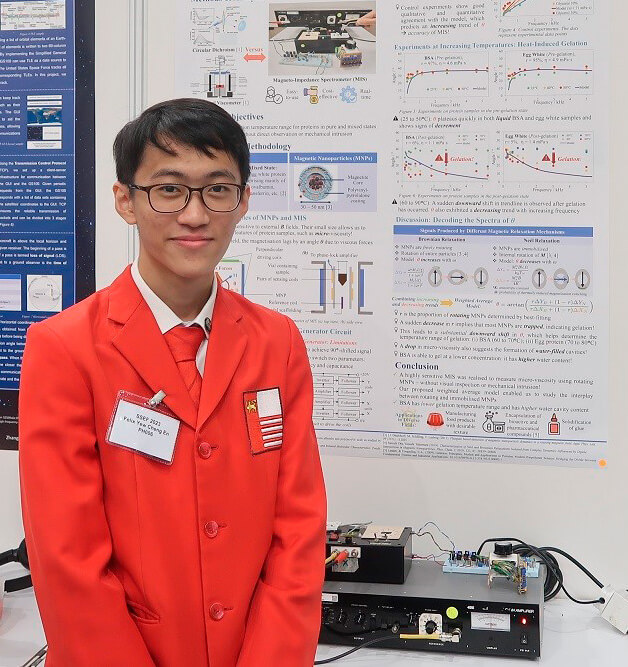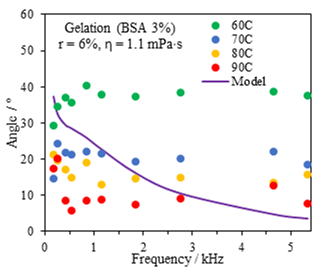SSEF Gold Award
Singapore Science and Engineering Fair (SSEF) 2023
Felix Yew Cheng En, National Junior College
Supervisor: A/Prof Nikolai Yakovlev
PH006, Gelation of Proteins Studied with Magnetic Nanoparticles

Recently, magnetic nanoparticles (MNPs) have garnered much utility in multiple areas of biological and physicochemical research due to their ability to probe the micro-structure and dynamics within the bulk material at the nanoscale, thereby showing great analytical potential. MNPs are employed in this project to characterise the micro-viscosity of protein samples as well as the gelation of proteins. A compact and sensitive magneto-impedance spectrometer is designed and constructed. It creates a rotating magnetic field and detects the signals from MNPs that are injected into a sample. Experiments aim to detect the phase lag of the magnetisation vector of the MNPs with respect to the rotating magnetic field, which can then be used to determine the micro-viscosity of the samples based on the effective-field model. The protein samples chosen comprise of bovine serum albumin and egg white. During experiments, it was found that obtained signals originated from both rotating and immobilised MNPs. By identifying their proportions, we observe that the population of rotating MNPs shrinks substantially when gelation occurs. This allows us to identify the gelation temperature range of proteins without the need for mechanical intrusion or visual inspection.



